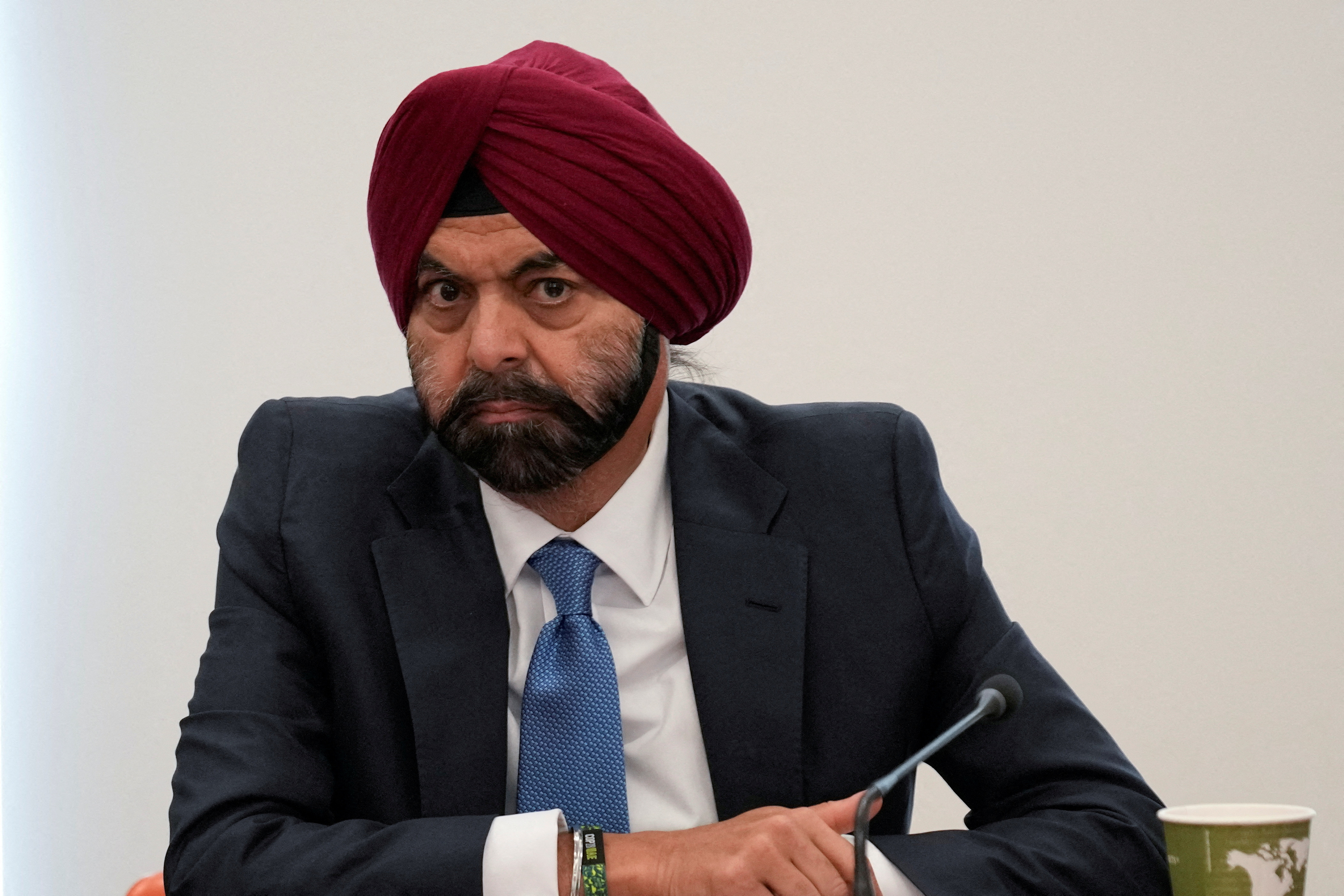[ad_1]

Ajay Banga, World Bank president, participates in global infrastructure and investment forum in New York, Thursday, Sept. 21, 2023. Seth Wenig/Pool via REUTERS/File Photo Acquire Licensing Rights
Sept 26 (Reuters) – World Bank Group President Ajay Banga on Tuesday said that proposed new contributions from wealthy countries under a capital adequacy framework could increase the bank’s lending capacity by $100 billion to $125 billion over a decade.
Banga told a Council on Foreign Relations event that the contributions would come outside the bank’s normal shareholding structure and regular country contributions to the International Development Agency fund for the poorest countries.
They would include U.S. President Joe Biden’s proposed $2.25 billion supplemental budget request for the World Bank, along with expected contributions from Germany, Japan, South Korea, Saudi Arabia and Nordic countries, he said.
“I believe that if all this goes through, including the U.S., we could raise somewhere between $100 billion and $125 billion of extra lending capacity in the bank, which is pretty good. Not enough, but good,” Banga said.
Such contributions could more than double the bank’s move earlier this year to increase its leverage ratio to squeeze out an additional $50 billion in lending over a decade, as it seeks to aid the climate transition and other global development challenges.
Banga said that he has not yet held any discussions with the United States and China regarding a general capital increase and changes to the bank’s shareholding structure.
China, India and Brazil got larger shareholding in the bank in a 2018 capital increase and would likely want more say in a future capital increase, Banga said. He added that China has been a “constructive” partner for the lender, cooperating in areas including climate, healthcare and rural development
MASSIVE DEMANDS
The former MasterCard CEO, who took over the World Bank’s top job in June, has said he wants to build a “better bank” – increasing its urgency, focusing it on high-impact, replicable projects and expanding beyond its anti-poverty mission – before seeking a general capital increase from shareholders.
He said that G20 countries will struggle to agree with an experts’ report commissioned by the group that calls for a massive capital infusion into the World Bank and other multilateral development banks to help finance the $3 trillion in annual spending needed by 2030 for climate adaptation, resilience and mitigation.
But he said the bank’s resources, even with moves to stretch its balance sheet, are woefully inadequate, with paid-in capital of just $22.6 billion for the World Bank’s International Bank for Reconstruction and Development over its 78-year history.
“That is a pimple on a dimple on an ant’s left cheek compared to what we need in the world,” Banga said.
Banga said that deeper conversations were needed on the World Bank’s future funding, but added that he would “not try and put an idealistic number out there” for the size of a future capital increase.
Reporting by David Lawder; Additional reporting by Paul Grant; Editing by Rosalba O’Brien
Our Standards: The Thomson Reuters Trust Principles.
[ad_2]
Source link
